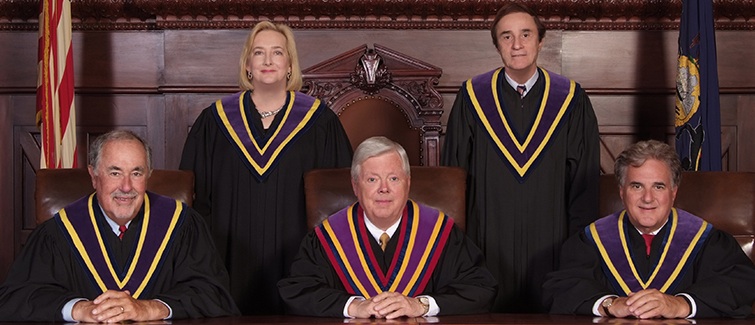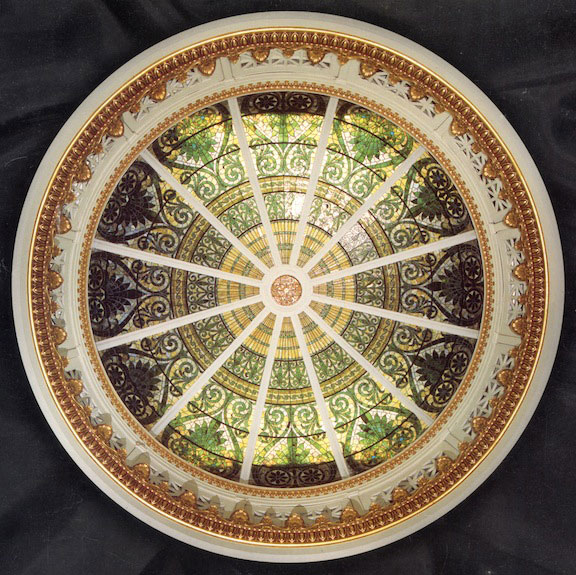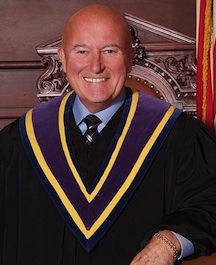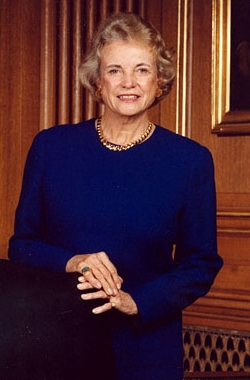When politicians wear robes

Pennsylvania court breaks its own confidentiality rules to leak story to Philadelphia Inquirer
‘The reasonable question to now ask is whether any other court officials or court employees received or sent any of the thousands of porno emails still suppressed by the Pennsylvania Supreme Court.’
From the perspective of the politicians running Pennsylvania courts, state Attorney General Kathleen Kane is a dangerous and uncontrollable loose cannon who must be stopped, at all cost.
Kane has already deeply embarrassed the courts with her discovery of thousands of pornographic emails.
Those stacks of porno emails were regularly sent or received by at least one state supreme court justice, state and local prosecutors, private lawyers, and an unknown number of state bureaucrats and, we can assume, court officials.
State Supreme Court Justice Seamus McCaffery, cabinet and executive branch officials, and others have already been forced to resign thanks to Kane’s highly embarrassing discoveries.
Former Justice Seamus McCaffery: central role in growing email porn scandal |
|
Last week, at Kane’s prodding, the state high court angrily released only a small fraction of the porno emails it had been suppressing for most of a year. Those recently released court filings also reveal that Justice McCaffery played a central role in emailing pornography to the justice’s own past and present co-workers.
Those repugnant emails have sparked cries for another round of resignations, including calls for the sacking of a once-highly regarded state prosecutor, Frank Fina. Fina, thanks to the publication of his strange smut collection, is not so highly regarded anymore.
The reasonable question to ask is whether any other court officials or court employees received or sent any of the thousands of porno emails still suppressed by the state Supreme Court.
In other words, are the politicians who wear robes on Pennsylvania’s highly politicized state courts acting to protect themselves, their friends, and their political cronies by suppressing highly embarrassing emails?
This isn’t as far-fetched as some would believe. The state high court suppressed the Cash for Kids scandal for nearly two years, after they realized the son of a chief justice co-owned a detention facility that for years bribed state judges.
So to stop AG Kane, what are these robe-wearing politicians to do?
They are doing what every other politician does: they’re dragging Kane through boards and hearings they control, while they leak their plans to newspapers under their thumbs.
Those looking to confirm this need look no further than an unwittingly humorous article published by the editorial arm of the state courts, the Philadelphia Inquirer, this August 28.
The article, headlined, “High court panel trying to suspend Kane’s law license,” was written by Inquirer staff writers and court jesters Angela Couloumbis and Craig McCoy.
This article rehashes what everyone already knows: state court officials, and their close associates at the Inquirer, are outraged, so they say, that Pennsylvania Attorney General Kathleen Kane may have leaked “secret” grand jury information to the Inquirer’s sister newspaper, the Daily News, for a news article.
So what do these paragons of virtue in the courts and the Inquirer, outraged as they say they are about leaks, do?
Why of course someone in the Pennsylvania Disciplinary Board leaks a news story to the Inquirer, about a confidential complaint involving AG Kane.
“In a move that could force Attorney General Kathleen G. Kane from office, the Disciplinary Board of the Pennsylvania Supreme Court has notified her that it is seeking to suspend her law license, according to sources familiar with the matter,” write Couloumbis and McCoy (emphasis mine).
The word “leak,” in fact, appears no less than three times in the story leaked to the Inquirer from the court’s old boys, about, well, the badness and social evil of leaks to newspapers.
“Prosecutors say (Kane) illegally leaked confidential documents to a reporter,” the story reads. And, “Prosecutors say Kane leaked information to the Philadelphia Daily News.”
Leaking is something that the state court’s Disciplinary Board, whose own complaints are supposed to be confidential, obviously knows something about.
![]() of which puts me in mind of two jokes. One is a journalistic joke. The other is a legal joke.
of which puts me in mind of two jokes. One is a journalistic joke. The other is a legal joke.
The journalistic joke is called the Philadelphia Inquirer.
The legal joke is called the Disciplinary Board of the Supreme Court of Pennsylvania.
Whoever with the Disciplinary Board leaked this story to the Inquirer would themselves do well to actually read the state rules governing “Disciplinary Enforcement.”
For there, under Chapter 83 of the Pennsylvania Code, the Pennsylvania Rules of Disciplinary Enforcement, the word “confidential” appears no less than 39 times.
“Complaints submitted to the Board or Disciplinary Counsel shall be confidential,” read those pesky rules.
That someone with ties to the Disciplinary Board is breaking its own rules deserves our consideration.
In the Kathleen Kane case, by leaking to the Inquirer, the Disciplinary Board is acting in what lawyers call an “arbitrary and capricious manner,” defying its own supposed purpose, and rules, to trample her rights, and destroy Kathleen Kane.
Which is no surprise at all to anyone familiar with the sordid history of the Disciplinary Board of the Pennsylvania Supreme Court.
![]() law offices all around the United States, the Disciplinary Board of the Pennsylvania Supreme Court has been for decades a laughable joke, acting, as we see now, in a arbitrary and capricious manner, and as a political enforcement arm of a notoriously corrupt, politicized court system.
law offices all around the United States, the Disciplinary Board of the Pennsylvania Supreme Court has been for decades a laughable joke, acting, as we see now, in a arbitrary and capricious manner, and as a political enforcement arm of a notoriously corrupt, politicized court system.
It’s a good thing the Philadelphia Inquirer has no institutional memory left at all these days, because it should know better than most the long and troubled history of the court’s Disciplinary Board.
‘It’s a good thing the Philadelphia Inquirer has absolutely no institutional memory left at all these days’ |
|
Here’s just one memorable example (and there are many): consider a telling episode dragged up during the 1990s impeachment trial of state Supreme Court Justice Rolf Larsen.
Larsen was one of the state’s most overtly political judges. One of Larsen’s close court and political friends was attorney Richard Gilardi, of Pittsburgh.
“The grand jury said Gilardi went to Larsen’s chambers in 1988 and asked the justice to read his petitions in two cases,” the Inquirer reported, leading up to Larsen’s impeachment.
Larsen instructed Gilardi to write “yes” or “no” on the two petitions involving Gilardi, presumably to guide Justice Larsen’s decisions.
“On the cover sheet in a case in which Gilardi was opposing a request for appeal, he had written No, according to the grand jury. On the cover sheet in a case in which Gilardi’s client was seeking an appeal, the grand jury said, Gilardi had written Yes,” reported the Inquirer in the 1990s.
At the time, the implication, of course, was that Justice Larsen was fixing cases for his good buddy, attorney Gilardi.
And just who was Richard Gilardi?
Former Justice Rolf Larsen |
|
“Richard Gilardi (was) a former chairman of the state Disciplinary Board responsible for investigating lawyer misconduct in Pennsylvania,” the Inquirer dutifully reported at the time.
In an article attempting to explain all this to readers, the Philadelphia Inquirer quoted a special prosecutor as saying, “It goes back to the appearance of politics... I have never heard it as much and seen it as much in play as in Pennsylvania.”
And it still goes on to this day. Today, as we see in Kane’s case, it’s even worse, because, more than ever, state judges must raise ever-more millions in campaign donations -- as politicians -- to get elected to our bench.
So they must continue to break their own rules, and use their politicized Disciplinary Board and newspaper pals to silence a dangerous and uncontrollable political foe.
![]() Kane’s case, today, the judges and their enforcement-arm Disciplinary Board pretend they are doing Kane a favor by merely “suspending” her law license, and not outright revoking it.
Kane’s case, today, the judges and their enforcement-arm Disciplinary Board pretend they are doing Kane a favor by merely “suspending” her law license, and not outright revoking it.
In reality, the judges are doing themselves, and their porno slinging co-workers, a big favor.
To outright revoke her law license, Kane could probably demand an open hearing, with witnesses, before the state Supreme Court.
A suspension, on the other hand, can probably be attained with no hearings, in the dark, as they are obviously planning to do. And as the Disciplinary Board has done in past “suspensions,” Kane’s witness list probably will be quashed too. So that means she won’t be allowed any witnesses. And, it follows, any meaningful due process.
Where does all this leave Katherine Kane? What should she do?
Kane should certainly take very an aggressive stance with the state Supreme Court, and its politically tainted Disciplinary Board.
But if Kane were wise she’d get out of the state’s overtly political court system altogether as soon as procedurally possible, and take the matter up with the U.S. Supreme Court.
Kane could and should appeal Pennsylvania’s politicized Disciplinary Board procedures and its sordid history directly, right now, to the U.S. Supreme Court.
The U.S. Supreme Court justices then would probably defer, as they usually do, to their justice representing Pennsylvania - Republican Justice Sam Alito, formerly of the Philadelphia 3rd Circuit - and refuse to take her appeal.
But perhaps not.
Katherine Kane’s best hope is to remind the other U.S. Supreme Court justices of two very well-received speeches delivered to the Philadelphia Bar by former Justice Sandra Day O’Connor, in 2003, and 2013.
Justice Sandra Day O’Connor |
|
In her blistering 2013 attack on Pennsylvania’s elected judiciary, Justice O’Connor told the Philadelphia Bar, “It’s a serious problem that people in this country think of judges as politicians in robes.“
“Compelling judges to become politicians has almost destroyed the traditional respect for the bench.” O’Connor went on.
“O’Connor expressed her concern that the idea of having one’s day in court and the merits of one’s case being decided without passion or prejudice is being eroded by threats to judicial independence, namely the need to raise money to compete in partisan judicial elections. The cost of a judicial election is steadily rising, and while many states did not reach the $1 million mark until the year 2000, Pennsylvania reached it in 1989,” the Philadelphia Bar Association’s Bar Reporter wrote in July 2013.
Today, as I write, millions are being raised for the next round of state court elections.
And now we see more evidence of the unseemly influence of money and politics in Pennsylvania courts with this overtly political revenge case against Kane, the attorney general should now tell the U.S. Supreme Court.
Though Pennsylvania’s politicians-in-robes think they are hurting Kathleen Kane, they are ultimately hurting themselves, and the judiciary, Justice O’Connor reminds us.
“Our Constitution is not and could never be defended only by a group of judges. One of our greatest judges, Learned Hand, understood this very well. He explained: ‘Liberty lies in the hearts of men and women; when it dies there, no constitution, no law, no court can save it,’” O’Connor said at the National Convention Center in Philadelphia in 2003, when she received the Liberty Medal.
“But our understanding today must go beyond the recognition that ‘liberty lies in [our] hearts’ to the further recognition that only citizens with knowledge about the content and meaning of our constitutional guarantees of liberty are likely to cherish those concepts.
“As James Madison reminded us long ago, ‘the advancement and diffusion of knowledge’ is ‘the only Guardian of true liberty.’”
Average citizens may not understand or care about constitutional law, or high court procedures.
But they sure as hell understand pornography, and smut, and hiding it.
- Bill Keisling
posted September 4, 2015



